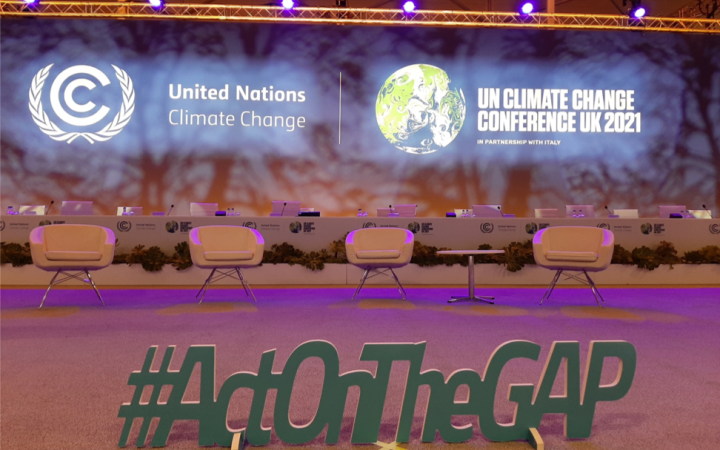3 December 2021, Geneva, Switzerland – The COP26 summit brought parties together to accelerate action towards achieving the goals of the Paris Agreement and the UN Framework Convention on Climate Change (UNFCCC). With the rising urgency surrounding the global environmental crisis, climate change diplomacy is maturing to include a wide range of policy domains, from finance and the economy, to gender sensitive adaptative actions in climate negotiations.
In order to discuss the various implications of climate change diplomacy following the Glasgow Climate Change Conference, UNITAR hosted a three-part webinar series for diplomats from the Swedish Ministry of Foreign Affairs.
The first webinar with Climate Change Diplomacy expert Dr. Marcelo Rocha tackled some of the key decisions taken at the Glasgow summit. The practical consequences for the implementation of the Paris Agreement, and specifically the Nationally Determined Contributions (NDCs) were addressed, as was the modus operandi of a COP/CMA, with a particular focus on conferences affected by the COVID-19 pandemic.
The second webinar focused on finance and economy in the present and future of the UNFCCC process. International law and policy advisor, Dr. Ana María Kleymeyer, covered key the finance decisions from COP26, as well as other important global discussions relating to the financial and economic dimensions of climate change, including international financing mechanisms, debt-for-climate swaps, COVID recovery packages, economic justice, and philanthropic financing, amongst others.
The last webinar unpacked how gender sensitive adaptation actions have been addressed within the current international climate negotiation process. Dr. Angela Baschieri, Population Dynamics Policy Adviser at the United Nations Populations Fund (UNFPA), discussed how women’s unequal participation in decision-making processes compounded inequalities and prevented women from fully contributing to climate-related planning, policy-making, and implementation.
The interactions and interventions from all participants contributed to making this webinar series a valuable learning experience with insights from the most recent, and the most important climate negotiations of our times. UNITAR avails itself of this opportunity to thank the Swedish Ministry of Foreign Affairs. and their distinguished participants, for their attention to such salient challenges.


